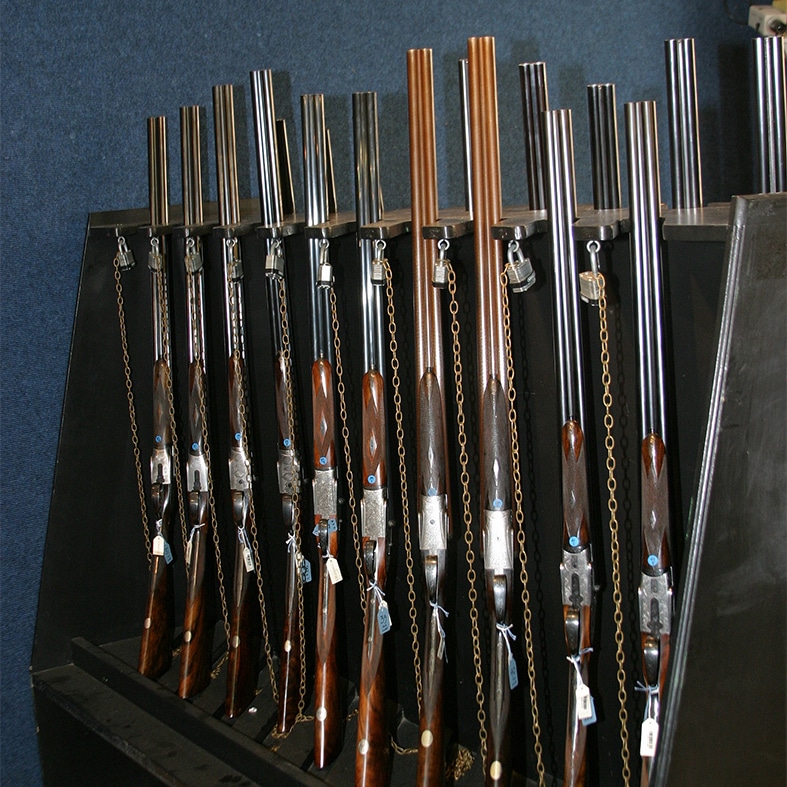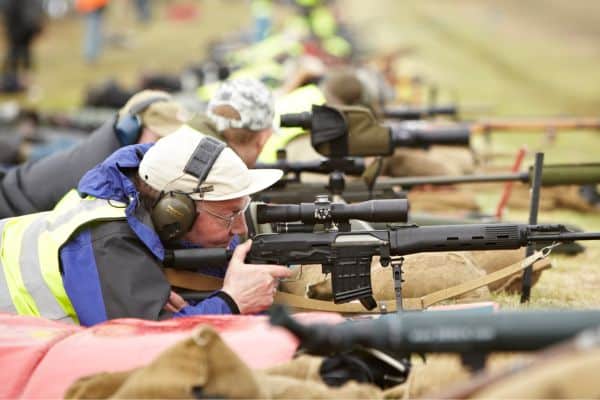
BASC medical panels
BASC’s medical panel provides a speedy resolution to members who are being let down and delayed by unhelpful GPs during the firearms licensing process.
Get information on the legal shooting season for mammals and birds in the UK.
Learn about our current conservation projects and how you can get involved.
Comprehensive information and advice from our specialist firearms team.
Everything you need to know about shotgun, rifle and airgun ammunition.
Find our up-to-date information, advice and links to government resources.
Everything you need to know on firearms law and licensing.
All the latest news and advice on general licences and how they affect you.


Firearms Firearms security Firearm and shotgun security
As the holder of a firearm or shotgun certificate, you are required to comply with the conditions on your certificate relating to security – conditions 4 (a) &(b).
“The firearms and ammunition [or shotguns] to which the certificate relates must at all times (except in the circumstances set out in paragraph (b) below) be stored securely so as to prevent, so far as is reasonably practicable, access to the firearms or ammunition by an unauthorised person.”
“Where a firearm or ammunition [or shotgun] to which the certificate relates is in use or the holder of the certificate has the firearm with him for the purpose of cleaning, repairing or testing it or for some other purpose connected with its use, transfer or sale, or the firearm or ammunition is in transit to or from a place in connection with its use or any such purpose, reasonable precautions must be taken for the safe custody of the firearm or the ammunition.”
The security requirements above relate to all firearms, sound moderators and ammunition held on a firearm certificate.
On a shotgun certificate, it only relates to shotguns, not cartridges. However, it makes sense to keep them hidden away and well away from your shotgun storage.
In practice, this means that when you’re not using your guns they should be locked away, preferably in a purpose-built gun cabinet, from anyone who hasn’t got a certificate, including family members.
Your gun cabinet should be secured firmly so that it can’t easily be removed – usually by bolting it to a wall, floor, or joists. If possible, it is best secured in a corner to make it difficult for a thief to attack it.
You should ensure that you keep the keys to the cabinet in a place where they can’t be found easily. Remember YOU are responsible for the security of the guns and letting people who do not have a certificate (including family members) know where the keys are, is NOT taking reasonable precautions to ensure that they don’t have access to the guns.
Criminals are aware of the habit of “hiding” keys in a drawer, so think carefully about the hiding place. It would be sensible to consider changing that hiding place from time to time.
Another option is to put the keys into a small combination safe – for which only you have the combination or use a gun safe with a combination lock. Equal care should be taken to prevent anyone else from knowing the access codes.
It is best to clean your guns immediately and then put them into their cabinet and lock them away as soon as possible. Leaving guns out “to dry” could compromise security and modern lubricants and water dispersants make drying quick and simple.
Also, make sure you haven’t dropped any ammunition in your car, or left any in the glove compartment or door pockets. Check your own pockets to ensure that you haven’t left any there as well and put it all in your separate ammunition storage.
There will be many occasions when you need to take your guns out for other reasons, and again the same applies – make sure you don’t leave them lying around and put them back in secure storage as soon as you have finished.
If you are in a vehicle and need to stop and leave it with guns or ammunition in it for any reason, make sure nothing shows which might indicate that there might be guns in it.
If possible, park it where it can’t be seen or overlooked, and reverse up to a wall making access to the boot difficult. The vehicle should be locked and alarmed.
You should not leave the vehicle longer than necessary. You might also use devices such as security cables, or vehicle-mounted gun safes. It would be wise to take other precautions such as taking parts such as a rifle bolt or fore-end with you as an additional security measure.
If you are in any doubt, remember that as a BASC member, you can call the BASC firearms team for help and advice on 01244 573010 or via email.
The Home Office has published a handbook which provides detailed advice on firearm security – which can be found here.
Protect Your Firearm, Protect Your Sport, a collaboration between BASC and the National Crime Agency, shares tips with certificate holders on storage and transportation and on keeping vigilant when out and about. It also shows the steps that can be taken to avoid being targeted via social media.
Remember it is YOUR responsibility to ensure that unauthorised people don’t have access to your guns. It is an offence if you fail to do so, and you could be prosecuted and have your certificate revoked if you are careless in this respect.
We each have a responsibility to make sure guns do not fall into the wrong hands.

BASC’s medical panel provides a speedy resolution to members who are being let down and delayed by unhelpful GPs during the firearms licensing process.

This branch of the target-shooting sports has been growing in popularity over the past few years. It involves using either original old guns, or replicas of modern manufacture.

Anyone shooting on MoD ranges (including Bisley ranges) is required to possess and produce, on request, a certification card for the type of firearm they are using.
Sign up to our weekly newsletter and get all the latest updates straight to your inbox.
© 2023 British Association for Shooting and Conservation. Registered Office: Marford Mill, Rossett, Wrexham, LL12 0HL – Registered Society No: 28488R. BASC is a trading name of the British Association for Shooting and Conservation Limited which is authorised and regulated by the Financial Conduct Authority (FCA) under firm reference number 311937.
If you have any questions or complaints about your BASC membership insurance cover, please email us. More information about resolving complaints can be found on the FCA website or on the EU ODR platform.
This website uses cookies so that we can provide you with the best user experience possible. Cookie information is stored in your browser and performs functions such as recognising you when you return to our website and helping our team to understand which sections of the website you find most interesting and useful.
Strictly Necessary Cookie should be enabled at all times so that we can save your preferences for cookie settings.
If you disable this cookie, we will not be able to save your preferences. This means that every time you visit this website you will need to enable or disable cookies again.
This website uses Google Analytics to collect anonymous information such as the number of visitors to the site, and the most popular pages.
Keeping this cookie enabled helps us to improve our website.
Please enable Strictly Necessary Cookies first so that we can save your preferences!
More information about our Cookie Policy